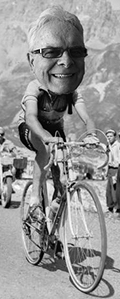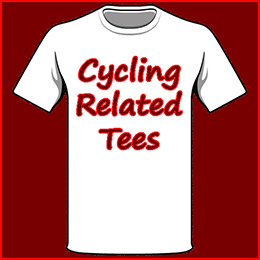Why Write?
 Tue, September 3, 2019
Tue, September 3, 2019  I have been an artist most of my life, I have painted pictures and created functional art in the form of racing bicycle frames.
I have been an artist most of my life, I have painted pictures and created functional art in the form of racing bicycle frames.
The greatest gift my mother ever bestowed on me was that she encouraged me as a child to draw and paint pictures, and to engage in simple craft projects.
She would tell her friends how good I was with my hands, and she would show them what I had made.
She would do this in my presence, which boosted my self-esteem, and left me with a feeling that there was nothing I couldn’t make with my hands, given the time and the resources.
I get high on creativity, high on the feeling of euphoria when I step back and look at what I have created. Like a junkie there came a time when the art I created no longer gave me that high. I needed a better fix, so I turned to writing and songwriting.
It is one thing to apply paint to canvas and create a picture, or to assemble pieces of metal and make a solid object. But to assemble words on paper, a computer screen or even in your head, to me is the ultimate form of creativity. It is truly creating something out of nothing, pulling something out of the air, so to speak.
Songwriting takes this a step further because you are pulling musical notes out of the air and adding to the words. Paul McCartney was once asked if he got a thrill from hearing his music performed by other artists. He replied that the biggest thrill he got was from walking down the street and hearing someone singing or whistling one of his songs.
Most of us will never see firsthand the work of Michael Angelo or an original Picasso and if we do it will only be for a moment. But the written word or recorded music can be shared by anyone, even for free. No one will charge you a fee to sing a Beatles song in your shower.
Language is the greatest gift given to humankind, it is what sets us apart from the animals. Animals have feelings, they feel happiness, grief, and anger but cannot express those feelings to others the way we can. I can assemble words, and if I do it right, can make others laugh or cry, or bring out other emotions, just by hearing or reading those words.
I can paint pictures with words, pictures far more vivid and real than I could ever paint on canvas. And the picture I paint will be different for each individual. I remember as a child listening to plays on the radio. The scenes I saw in my mind were real because they took place in my house and my neighborhood. I was in the scene, not on the outside looking in as I would be viewing a movie or television.
Through my writing I can re-live my life, I can do the things I wish I’d done and say the things I wish I’d said. Writing is wonderful therapy and the question I often ask myself as I finish something, is "Am I a better person for having written this?" If the answer is "yes" then it is a reward in itself.
Writing satisfies the need I have to create. If someone else learns something, is made to think, or is simply entertained then that is the extra scoop of ice cream on my apple pie.
 Art
Art 





















Uncertainty
I first arrived in the United States in January 1979. I flew into New York’s Kennedy Airport, and was picked up by my new employers, Vic and Mike Fraysee, owners of Paris Sport.
From there it was probably and hour’s drive to Ridgefield Park, New Jersey. About seven miles from New York City on the other side of the Hudson River. The frameshop where I worked was at the back of a bike store that the Fraysee’s owned.
The terms of my initial visa that I had when I entered the US, was that I would return to England before the end of the first year. I could then renew my visa and come back again.
I planned to return to the UK for the Christmas Holidays 1979, which gave me almost a year to work and save for the trip. By the fall of that year, it was clear money was going to be tight and I needed to find some extra cash to meet expenses.
On the corner of the same block where the frameshop was, there happened to be a large warehouse type building. It was home to a company that packaged Christmas wrapping paper. They were hiring seasonal part time workers for an evening shift.
And so it was, I started moonlighting. When I finished my day job building frames, I would work 6 to 10 in the Christmas wrapping paper plant.
It was probably around early November that year, as I took my one-mile morning walk to work, I rounded the corner just off Main Street, Ridgefield Park, to a scene of utter devastation.
The Christmas paper business had burned to the ground in a fire during the night. Only the four brick walls were standing, the roof was gone, and firefighters were cleaning up. All that was left of the place where I had worked the previous evening was a blackened, smoldering pile of rubble.
As I walked slowly past on the opposite side of the street, the cold realization was sinking in. I no longer had a part time job, no extra income, and possibly no Christmas trip to England.
However, within two weeks, the owners of the business had salvaged and repaired some of the machinery and had started up again in another building close by.
With only a few short weeks left before Christmas, they were now desperate to replace their lost stock, plus make up for two weeks lost production. I not only got my part time job back, I was now working a full 8-hour shift, from 6pm. to 2am.
There was a feeling amongst the workers, of wanting to help the owners succeed. They had not given up, we were not giving up.
I was also working two shifts on the weekends. The result was I probably made more money than if there had not been a fire. I made the trip to England with cash to spare.
I often think of this incident and a quote in the form of a question,
We need certainty in our lives to feel secure. We need to be reasonably certain that we will wake up in the morning, and that our loved ones will still be there. That our job will be there and the building not burned to the ground as I found.
Then every so often, life throws us a curve, something unexpected. Without the unexpected, life would be boring. Curved roads are more interesting than straight roads, we don’t know what is round that next bend.
Within uncertainty, there is adventure, excitement. I have always found in the past whenever a relationship has turned sour, or I have lost a job, when I look back years later, it was for the good.
Disappointments, for the most part are only temporary. Quite often they bring about an outcome that is better than originally expected. Throughout my life I’ve had many disappointments, but very few regrets.